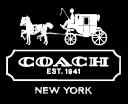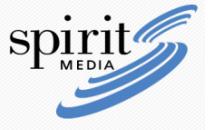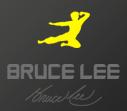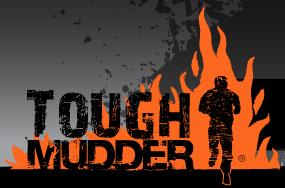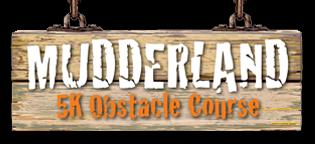South Bend, Indiana — The Northern District of Indiana has ruled in favor of Warner Brothers Entertainment, Inc. (“Warner Bros.”) of Burbank, California which had been sued by trademark holder Fortres Grand Corporation (“Fortres ![]() Grand”) of Plymouth, Indiana. Fortres Grand had alleged that Warner Bros. infringed its trademark, Registration No. 2,514,853, for the mark CLEAN SLATE, which has been registered by the U.S. Trademark Office.
Grand”) of Plymouth, Indiana. Fortres Grand had alleged that Warner Bros. infringed its trademark, Registration No. 2,514,853, for the mark CLEAN SLATE, which has been registered by the U.S. Trademark Office.
Fortres Grand develops, markets and sells software. Since 2000, it has marketed and sold software called “Clean Slate.” The Clean Slate software protects the security of computer networks by erasing all evidence of user activity so ![]() that subsequent users see no indication of a previous user’s activity, meaning that each new user starts his or her computer activity with a “clean slate.” Fortres Grand has sold millions of dollars worth of its Clean Slate software. In 2001, Fortres Grand obtained a federal trademark registration for the use of “Clean Slate” in connection with “computer software used to protect public access computers by scouring the computer drive back to its original configuration upon reboot.”
that subsequent users see no indication of a previous user’s activity, meaning that each new user starts his or her computer activity with a “clean slate.” Fortres Grand has sold millions of dollars worth of its Clean Slate software. In 2001, Fortres Grand obtained a federal trademark registration for the use of “Clean Slate” in connection with “computer software used to protect public access computers by scouring the computer drive back to its original configuration upon reboot.”
Warner Bros. is one of the most famous names in movie history. In the summer of 2012, it released its latest Batman film, The Dark Knight Rises. One of the plot lines in the film involves the character Selina Kyle (a.k.a. supervillainess Catwoman) and her attempt to procure a software program that will erase her criminal history from every computer database in the world. The software program she is trying to obtain was designed by the fictional company Rykin Data and is referred to four times in the film as “clean slate.”
Two websites — rykindata.com and rykindata.tumblr.com — were also created to promote the film. These websites are consistent with a recent trend in the online advertising of films: rather than just creating a straightforward promotional website where consumers can get information about the film (like, in this instance, www.thedarkknightrises.com), additional websites are created that market the film in a more subtle or creative way. In this instance, the websites are essentially a creative outgrowth of the fictional world of the film. They look like what a (fictional) citizen of Gotham might find if they were looking for information on the (fictional) Rykin Data company. These websites also use the term “clean slate” to describe the software referenced in the film.
Fortres Grand filed suit on September 19, 2012 alleging three counts based on the use of “clean slate” in the film and on the websites: 1) trademark infringement under the Lanham Act (15 U.S.C. § 1051 et seq.); 2) unfair competition under the Lanham Act; and 3) unfair competition under Indiana state law.
Fortres Grand asserted that it is, in fact, trademark infringement when a fictional product bears the same name as a real product. Warner Bros. took the opposite view and moved to dismiss the case.
The court began by noting that there is surprisingly little case law in matters such as these. Despite the many movie and television releases every year, courts have rarely been called upon to answer the question of whether it is trademark infringement if a fictional company or product in a movie or television drama bears the same name or brand as a real company or product.
The court analyzed all three of Fortres Grand’s claims — infringement, federal unfair competition, and state unfair competition — under the same trademark infringement analysis. It noted that an essential ingredient of trademark infringement is a likelihood of confusion among consumers as to the source of a product. Specifically, only confusion about origin supports a trademark claim. For this purpose, “origin” means the producer of the tangible product sold in the marketplace. Moreover, although the hallmark of trademark infringement is protecting against consumer confusion, it is not enough that there just be some generalized confusion. Trademark infringement protects only against mistaken purchasing decisions and not against confusion generally.
In this case, Grand Fortres was arguing a case of reverse confusion. This type of confusion exists when a junior user uses its size and market penetration to overwhelm the senior, but smaller, user. The “senior user” (here, Grand Fortres) is the first to adopt and use a mark anywhere in the country. The “junior user” (Warner Bros.) is the second user. The reverse confusion doctrine protects the senior user’s control of its mark and the goodwill created by the mark from a junior user’s employment of the mark, and protects the public from being deceived into believing that the senior user’s product emanates from, is connected to, or is sponsored by the junior user.
The court was not persuaded by Grand Fortres’ claim of confusion. To state a claim for reverse confusion in this case, the court held that Fortres Grand had to make plausible allegations that Warner Bros. saturated the market with a product that the public had been deceived into believing emanated from, was connected to, or was sponsored by Fortres Grand. The fatal flaw in Fortres Grand’s case had to do with correctly identifying the exact product that Warner Bros. had introduced to the market — a film, not a piece of software.
The court held that a comparison between the two products led to the conclusion that there was no plausible claim for consumer confusion regarding a consumer’s purchasing decision between the two nonfictional products — Fortres Grand’s software and Warner Bros.’s film. “Plaintiff is not in the motion picture business,” the court stated, citing a Warner Bros. pleading. “[I]t would be absurd to think that customers buy tickets to The Dark Knight Rises or purchase the DVD/Blu-ray because of a perceived association of the Film with Fortres Grand’s products.”
Finally, the court discussed the First Amendment issues associated with considering a trademark infringement claim under the Lanham Act when the asserted infringement took place in an artistic work. The Second Circuit’s Decision in Rogers v. Grimaldi, a landmark opinion in such cases, in discussing the use of intellectual property in the title of a work states:
[T]he [Lanham] Act should be construed to apply to artistic works only where the
public interest in avoiding consumer confusion outweighs the public interest in
free expression. In the context of allegedly misleading titles using a celebrity’s
name, that balance will normally not support application of the Act unless the title
has no artistic relevance to the underlying work whatsoever, or, if it has some
artistic relevance, unless the title explicitly misleads as to the source or the
content of the work.
As several Circuits have done, the court extended this analysis to cover not only the title of an artistic work, but also the body of the work. It concluded by holding that, even if there were a potential for consumer confusion caused by the use of “clean slate” in the film, the case still must be dismissed because Warner Bros.’s use of the term is also protected by the First Amendment.
Practice Tip: A more plausible legal argument might have been trademark dilution. The complaint, however, did not bring a claim under the Trademark Dilution Act. This may have been because Fortres Grand recognized that its “Clean Slate” trademark was not a “famous” one, which is a requirement for bringing a trademark dilution case.
 Indiana Intellectual Property Law News
Indiana Intellectual Property Law News


